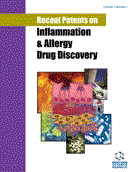Abstract
Toll-like receptors (TLRs) are a family of pattern recognition receptors that serve as a key part of the innate immune system. TLRs play a role in coordinating the organisms first line of defence against invading microbes or tissue injury. TLR-mediated inflammation is an important pathogenic link between innate immunity and a diverse panel of clinical disorders. Among these processes are cardiovascular disorders such as atherosclerosis, heart failure, viral myocarditis or diabetic angiopathies. In the new area of TLRs, this has generated a lot of interest from pharmaceutical companies as well as the investment communities. The improved understanding of TLRs, their key ligands and signaling cascades brought a number of diagnostic methods and compounds into clinical development. The first potential applications for TLR compounds include therapies for cardiovascular disease. The idea of this article is to describe the molecular basis of TLR signaling and review corresponding new inventions relating to TLR system and drug targets in cardiovascular disease.
Keywords: Toll-like receptors, cardiovascular disease, atherosclerosis, innate immune system, lipopolysaccharides, developmental drugs, patent
 15
15


















